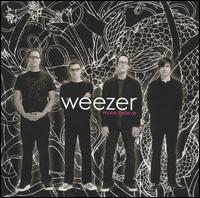Sarah McLachlan’s Wintersong is the latest contribution to the Christmas music canon. Sarah is one of my favorite female singers, because she is able to create such a specific atmosphere with the power of her voice. She is incredibly talented, and no one else sounds quite like her. She brings a unique quality to everything she does, and Christmas music is no exception. On Wintersong, she covers the spread from hymns to pop classics to lost pop gems to original material. With this album, I am struck by Sarah’s ability to inject soft melancholy to something like Christmas, and to make me feel not sad about it, but contemplative. Her voice is haunting in places and soothing in others, and that is brought home especially when she performs this sort of material. Each artist can bring their own perspective to Christmas music, and therein lies part of the beauty of it.
Sarah’s rendition of “Happy Xmas (War is Over)” catches me as being particularly beautiful. The style and cadence of her voice lend itself to this song to bring out the effect of it twice as well as when John Lennon did it. Sarah McLachlan is on another level of entertainers, one of performers who use their fame for philanthropic efforts to help the less fortunate. On “Happy Xmas (War is Over),” she records with the Sarah McLachlan Musical Outreach Choir & Percussion Ensamble, and the kids add a whimsical element to the already wistful music. “Have Yourself a Merry Little Christmas” and “In the Bleak Midwinter” are very nice and uplifting tunes. “River,” which was originally recorded by Joni Mitchell, has sadness and yearning in its gentleness, and Sarah’s one original tune here, “Wintersong,” is the most melancholy moment on the album. But like I said before, the lowness of the music doesn’t depress you; instead, it makes you quietly reflect on the true meaning of Christmas, and you realize that very little is necessary to truly enjoy it. Sarah pulls off a very neat trick here, making music that makes you feel sad, but a good kind of sad, a sad that makes you feel happiness all the more.
The most interesting moment on the album is “The First Noel/Mary Mary.” She very oddly chooses a minor key for this uplifting carol, and then adds deep drums and echoing voices to give the song an Arabian feel. It seems weird, but she doesn’t oversell it, and instead delivers a gently subtle performance, like everything else she does. It’s quite a feat, but Sarah makes you believe it 100%.
Sarah McLachlan has made a very pretty album with Wintersong, and its beauty is soft and subtle rather than vast and engaging. She doesn’t try very hard, but I don’t think she has to. I probably wouldn’t like this album nearly as much if it weren’t composed of Christmas music, and my estimation of it will probably go down a bit in the beginning of January. But for now, with Christmas almost upon us, I gladly add it to the canon of Christmas music.
Happy Xmas (War is Over)
Have Yourself a Merry Little Christmas
The First Noel/Mary Mary
Wintersong


